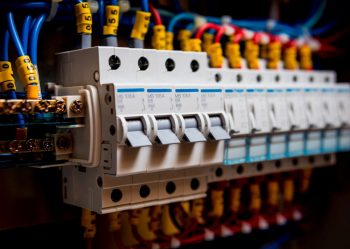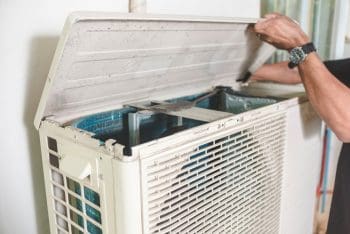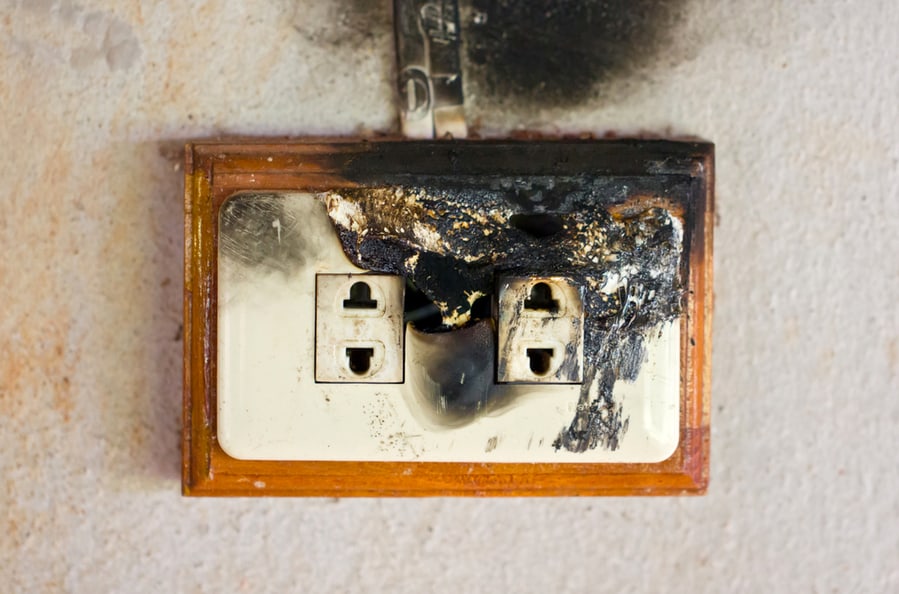
Electrical Outlets are a crucial component of any building’s electrical system, providing a safe and convenient way to plug in and use electrical devices.
However, electrical outlets can malfunction in some cases and potentially become dangerous, such as when they melt.
Electrical outlets usually melt due to current overflow, loose connections, arcing, short circuits, or wiring issues. When the outlet ages, it often gets overheated, melting the outlet.
Further, this article will explore the possible causes of an electrical outlet melting and discuss the steps you should take if you encounter this issue in your home or workplace.
5 Causes an Electric Outlet To Melt
An electric outlet is a commonly used accessory we find in our homes. A typical outlet comprises of plastic front plate called a receptacle.
Behind the receptacle are spring clamps for holding the plug. The appliance’s plug goes into the holes in the receptacle.
You will notice that the electric outlet is melting when things go south.
Understanding the root causes of melting electrical outlets and how to safely address the problem can protect yourself and your property from electrical hazards.
1. Overloading / Current OverFlow
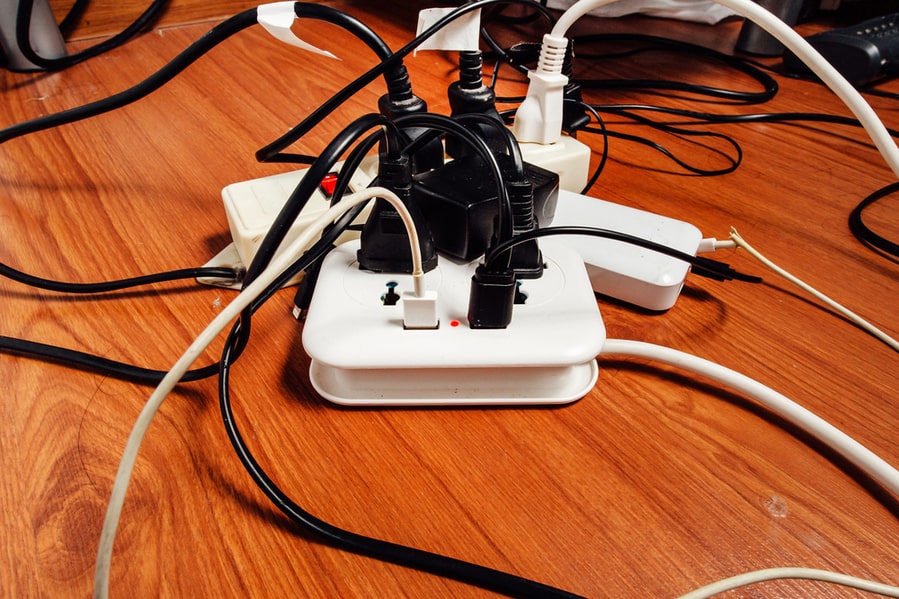
One of the most common causes of melted electrical outlets is heavy current running through the outlet. This occurs when you plug too many appliances into the same outlet.
Or, in the other case, when you have plugged in an appliance that consumes more current than the socket’s designed limit.
Receptacles have a current rating listed on them. In the U.S., 15 and 20-amp outlets are common in homes.
If you plug in an appliance or multiple appliances whose collective current consumption is more than 20 Amperes, the outlet starts to overheat and eventually melts.
2. Loose Connections (Arcing)
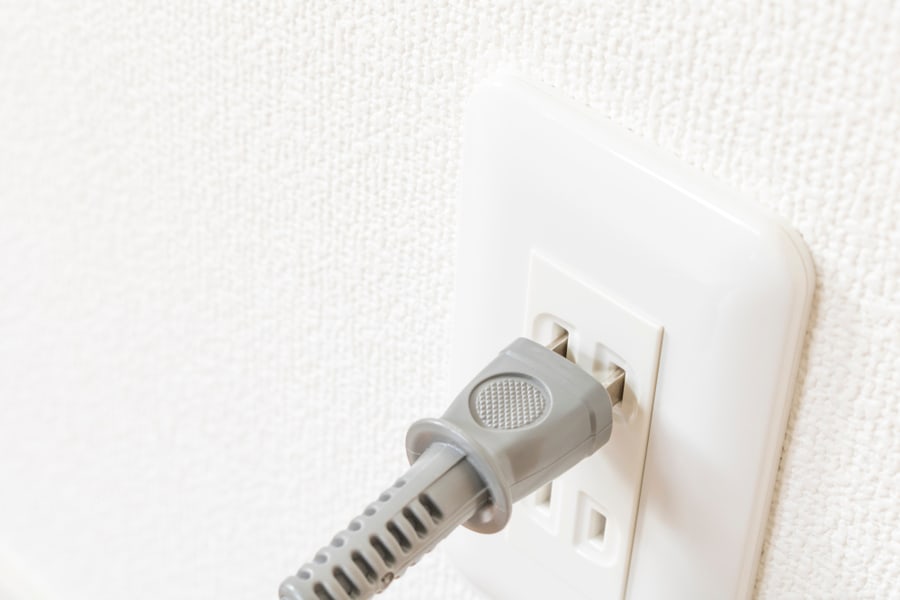
Loose wiring connections can also lead to melting electrical outlets. When wires are not properly connected to the outlet, they can move around and become loose.
This can lead to arcing, a condition in which electricity jumps from one wire to another. In this case, you may see electric sparks or hear a buzzing sound from the socket. Arcing can cause the outlet to overheat and melt.
3. Short Circuit
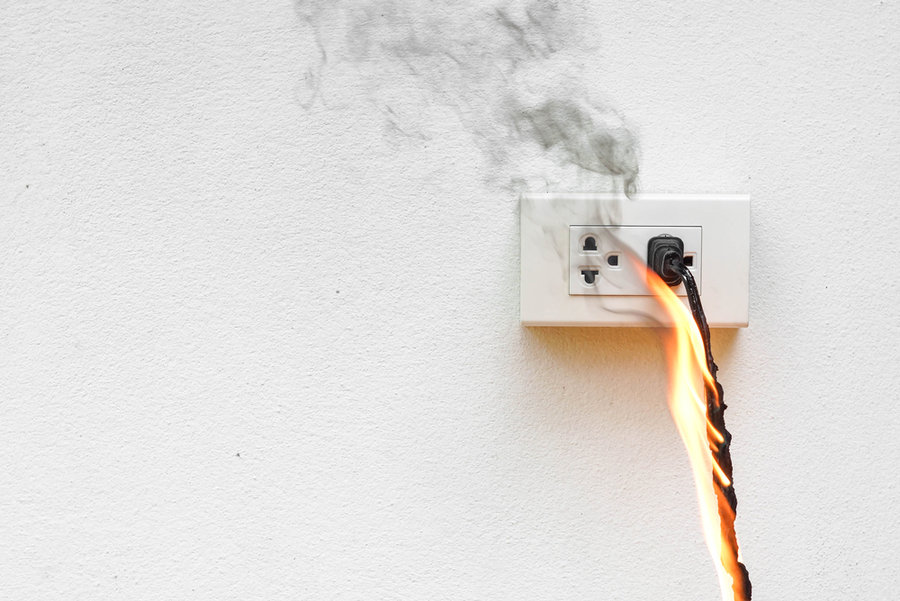
The electrical outlet can also melt due to a short circuit within the wiring system.
A short circuit occurs when a live wire touches a neutral or ground wire. When this happens near an outlet, the current is diverted, creating a large amount of heat that melts the outlet and your home’s wiring.
4. Wiring Issues
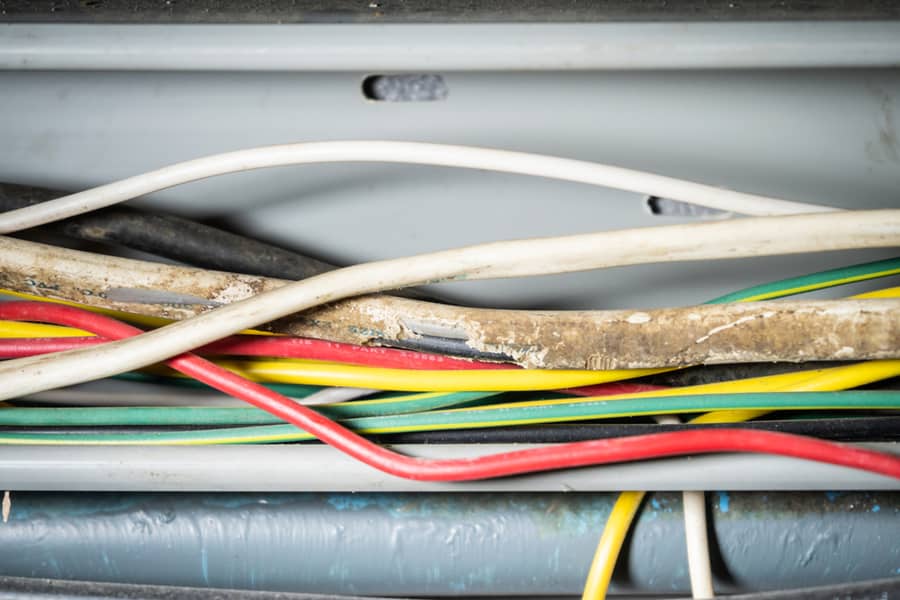
Another reason may be faulty or damaged wiring. If the wires connecting the outlet to the electrical system are frayed, stripped, or otherwise compromised, they may not be able to properly conduct electricity, causing the outlet to overheat.
Similarly, if you use a wrong-sized wire, i.e., it cannot handle the appliance’s large current, it will overheat due to resistance and eventually melt your outlet.
5. Poor Quality Outlets
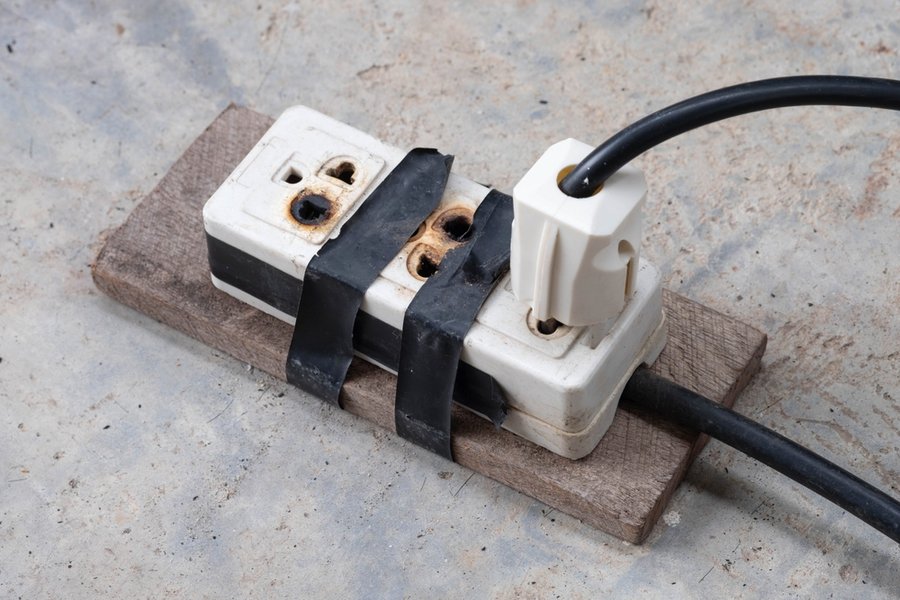
In some cases, the problem may lie with the outlet itself. If the outlet is of poor quality or has been damaged, it may not be able to safely handle the electrical current flowing through it, leading to melting.
Additionally, over time, outlets can become worn and degraded, making them more prone to overheating and malfunction.
What To Do When You Suspect Electrical Outlet Is Melting?
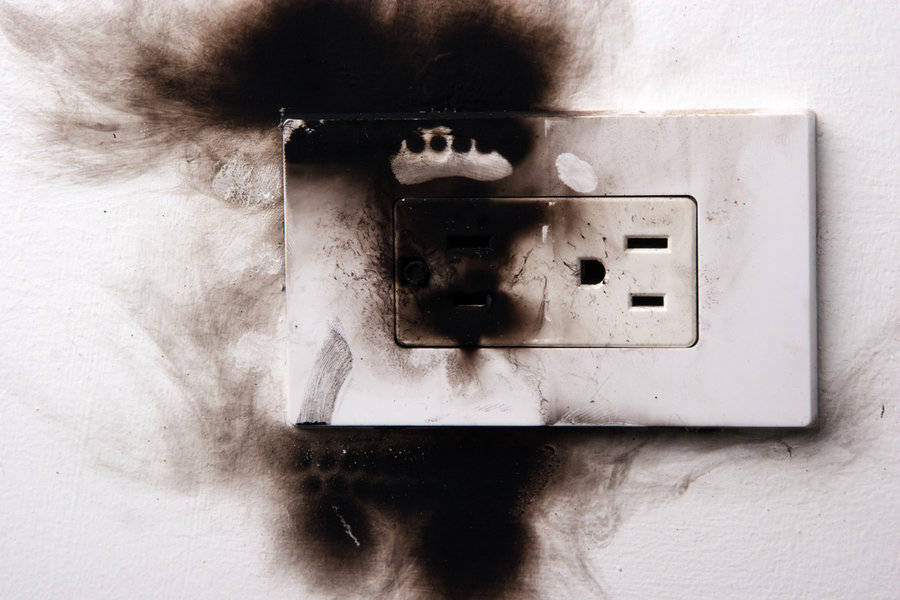
If you notice your outlet melting, it’s important to take action immediately to prevent a fire or other damage to your home.
Don’t touch a melted outlet with bare hands. Turn off the main supply. Allow it to cool.
- First of all, turn off the main electric supply.
- Remove all of the appliance plugs from the outlet. Be careful since it can be hot; use gloves or clothing to hold and remove it.
- After you have detached the appliances from the socket, turn on the main supply and wait for an expert to fix the issue.
- You can either replace the receptacle yourself or call an expert technician. However, we suggest you call a licensed electrician to look at your socket and fix it.
4 Ways To Avoid Overheating an Electric Outlet
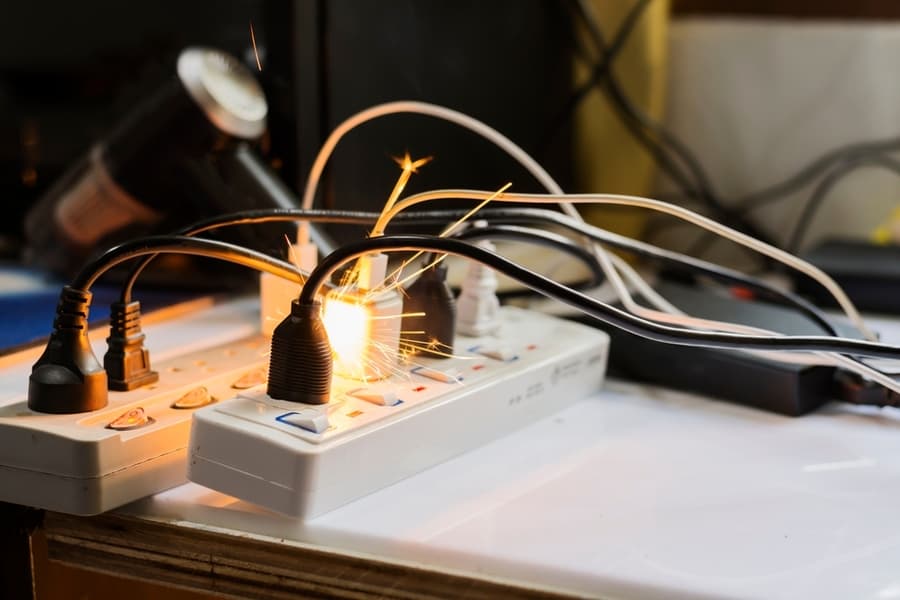
Though a melted outlet can be replaced, you should take some preventive measures to save the trouble of calling an electrician:
- Avoid Adding Too Many Plugs on a Single Outlet: An electrical outlet is designed to handle the load of one or two devices. However, when you connect too many devices to it, it gets overloaded. To prevent overloading, be sure not to exceed the outlet’s recommended wattage or amperage rating, and avoid plugging in too many high-wattage devices into a single outlet at once.
- Get Wiring Checked when You suspect Arcing: Whenever you notice a buzzing sound from the outlet, there are chances any of the connections are loose. Avoid ignoring it, and get it checked by a professional.
- Use Outlet Based on Appliance Rating: Some appliances need to draw more power, so you need bigger power rating outlets. For instance, if you run an air conditioner on a normal household outlet, probably the socket will melt.
- Replace the Outlet if it’s Damaged or Broken: Avoid using a damaged or broken outlet since it’s extremely dangerous; you may get a shock if your hand comes in contact with a live wire.
Don’t touch a melted-out with bare hands. Turn off the main supply. Allow it to cool.
Conclusion
In conclusion, electrical outlets can melt due to various factors, including current overload, loose connections, short circuits, wiring issues, and poor-quality outlets.
Suppose you suspect that your electrical outlet is melting. In that case, it is important to turn off the main electrical supply, remove all appliances, and call a licensed electrician to fix the issue.
Frequently Asked Questions
Is It Safe To Use a Melted Outlet?
No, it’s not recommended to use a melted outlet. First, the heating has melted down the outlet. Next, it will damage your wiring system and the attached appliances.
Can a Burnt Outlet Affect Other Outlets in the Room?
Normally, it doesn’t affect other outlets. However, if all outlets are attached to the same circuit breaker, the heating issue might cause the breaker to trip. Consequently, the other outlets also get affected.
Can a Melted Outlet Cause a Fire?
One of the reasons behind overheating is arcing, which generates sparks. If any of these sparks come in contact with clothing items like curtains, this may result in fire.



